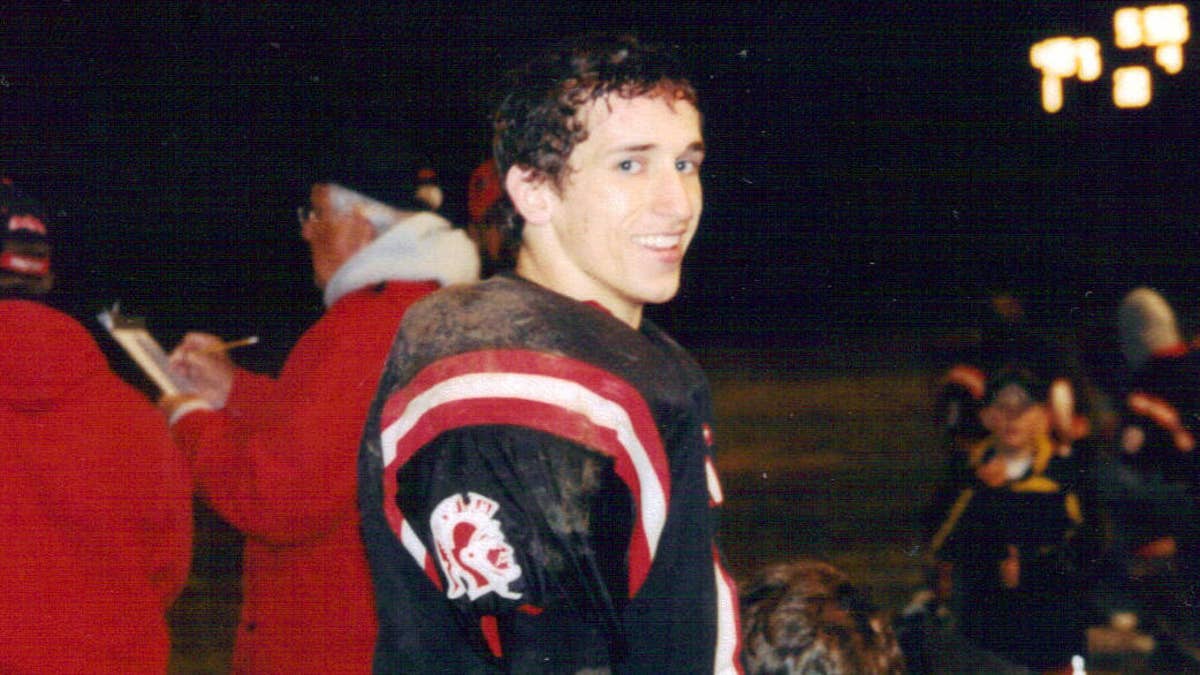
Feb. 5, 2015: Joseph Chernach stands on the sideline during a high school football game in Crystal Falls, Mich. (AP)
The Pop Warner youth football organization is being sued by the mother of a Wisconsin man who died in 2012, saying dementia and deep despair caused by brain injuries he suffered while playing youth football influenced his suicide.
Joseph Chernach was 25 when he hanged himself in his mother's shed in Hixton, Wisc. in 2012. The lawsuit said he suffered from degenerative brain disease called dementia pugilistica, also known as chronic traumatic encephalopathy or CTE. The suit alleges he got them from playing Pop Warner football from 1997-2000 starting when he was 11.
Debra Pyrka, Chernach's mother, filed the wrongful death lawsuit in federal court in Madison, Wisc. She is seeking $5 million from Pop Warner Little Scholars, the Pop Warner Foundation and their insurance company. The lawsuit claims the organization never warned Chernach, other children or parents about the dangers of playing tackle football. It also alleges Pop Warner Football is an "ultrahazardous activity" that is intrinsically dangerous to children.
"Pop Warner — by engaging in the business of sponsoring, organizing and promoting tackle football for children — engaged in conduct that was outrageous, malicious, intentional and was done with the intentional disregard of Joseph Chernach's rights as well as all other children who played Pop Warner football, not just in the State of Wisconsin but everywhere in the United States," the complaint charges.
The lawsuit says Chernach did well in his freshman year at Central Michigan University, but the effects of the brain diseases began to affect him in his sophomore year.
"From that point on his behavior became increasingly bizarre," the complaint says. "From that point on his mood became progressively depressed and ultimately paranoid, distrusting his closes friends and family. ... Joseph Chernach's suicide was the 'natural and probable consequence' of the brain damage he suffered playing football."
Pyka told the AP her son eventually stopped going to class.
"The depression got worse as time went on," she said. "The last year was awful. He was in his room a lot. He lived back and forth with his brother and some of his friends. He would come to my house. He just could not stay in any place at once. He tried to hold down a job but it was difficult for him. He would sleep all day and then be up at night."
Pyka's lawyer, Gordon Johnson, says the family did not learn of his brain damage until they received the autopsy results. He told The Associated Press that his brain was halfway toward the worst form of dementia seen in older football players.
Johnson said it's the first of what may be many cases against Pop Warner for exposing children to the kinds of risks that even the NFL is concerned about for its players. He said they think there have been hundreds of other suicides in which autopsies, had they been done, would have pointed the finger at youth football.
"I think that somebody should be held accountable for Joseph's death," Pyka said. "I want to see tackle football stop for these young kids. ... They should not be banging their brains together.
The Associated Press contributed to this report

